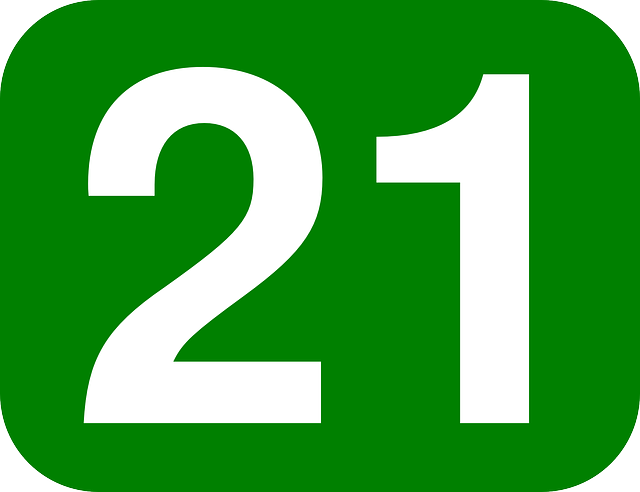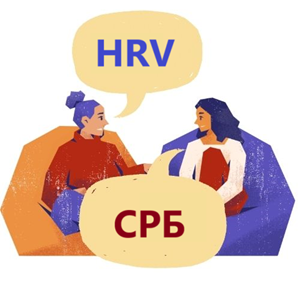Learn: verb „to live“, question word „gdje/gde“ and the grammatical case it comes with, numbers + nouns
CROATIAN VERSION
Transcription – CRO
Živim u gradu, a moji roditelji – mama i tata – žive na selu. Imam jednog brata i jednu sestru. Živimo svi zajedno. Prijatelji me često pitaju: „S kim živiš?“ Ja kažem: „Živim s bratom i sestrom.“
„Zašto ne živiš s mamom i tatom – s roditeljima?“ – pitaju me.
Jer moja braća i ja idemo na fakultet u Zagrebu pa živimo u stanu, a naši roditelji žive u kući na selu.
Ovdje imamo prijatelje i susjede. Moja sestra ima dvije (2) dobre prijateljice, moj brat ima dva (2) dobra prijatelja, a ja imam samo jednu (1) prijateljicu, ali volim se družiti sa susjedom Marinom.
Moja susjeda Marina je 2 (dvije) godine starija od mene i već ima muža i jedno (1) dijete, a ja nemam ni muža ni djecu. Njezin muž Filip je naš dobar susjed. Često se družimo svi zajedno.
VOCABULARY
- živjeti (živim) – to live (I live)
- grad – city/town
- selo – village/coutryside
- svi – everybody
- zajedno – together
- često – often
- pitati – to ask
- s – with
- zašto – why
- jer – because
- fakultet – university
- stan – apartment, flat
- kuća – house
- ovdje – here
- muž – husband
- dijete – child
- djeca – children
- družiti se – to hang out
SERBIAN VERSION
Transcription – SRB
Cyrillic
Живим у граду, а моји родитељи – мама и тата – живе на селу. Имам једног брата и једну сестру. Сви живимо заједно. Другари ме често питају: “С ким живиш?” Ја кажем: „Живим са братом и сестром“.
“Зашто не живиш са мамом и татом – са родитељима?” питају ме.
Јер моја браћа и ја идемо на факултет у Београду, па живимо у стану, а родитељи у кући на селу.
Овде имамо другаре и комшије. Моја сестра има две (2) добре другарице, брат два (2) добра друга, а ја само једну (1) другарицу, али волим да се дружим са комшиницом Марином. Моја комшиница Марина је 2 (две) године старија од мене и већ има мужа и једно дете, а ја немам ни мужа ни децу. Њен муж Филип је наш добар комшија. Често се дружимо сви заједно.
Latin
Živim u gradu, a moji roditelji – mama i tata – žive na selu. Imam jednog brata i jednu sestru. Svi živimo zajedno. Drugari me često pitaju: “S kim živiš?” Ja kažem: „Živim sa bratom i sestrom“.
“Zašto ne živiš sa mamom i tatom – sa roditeljima?” pitaju me.
Jer moja braća i ja idemo na fakultet u Beogradu, pa živimo u stanu, a roditelji u kući na selu.
Ovde imamo drugare i komšije. Moja sestra ima dve (2) dobre drugarice, brat dva (2) dobra druga, a ja samo jednu (1) drugaricu, ali volim da se družim sa komšinicom Marinom. Moja komšinica Marina je 2 (dve) godine starija od mene i već ima muža i jedno dete, a ja nemam ni muža ni decu. Njen muž Filip je naš dobar komšija. Često se družimo svi zajedno.
VOCABULARY
- живети / živeti (živim) – to live (I live)
- град / grad – city/town
- село / selo – village/coutryside
- сви / svi – everybody
- заједно / zajedno – together
- често / često – often
- питати / pitati – to ask
- са / sa – with
- зашто / zašto – why
- јер / jer – because
- факултет / fakultet – university
- стан / stan – apartment, flat
- кућа / kuća – house
- овде / ovde – here
- муж / muž – husband
- дете / dete – child
- деца / deca – children
- дружити се / družiti se – to hang out
Translation
Živim u gradu, a moji roditelji – mama i tata – žive na selu.
I live in the city, and my parents – mom and dad – live in the village.
Imam jednog brata i jednu sestru.
I have one brother and one sister.
Živimo svi zajedno.
We all live together.
Prijatelji/drugari me često pitaju: „S kim živiš?“
My friends often ask me: “Who do you live with?”
Ja kažem: „Živim s bratom i sestrom.“
I say: “I live with my brother and sister.”
„Zašto ne živiš s mamom i tatom – s roditeljima?“ – pitaju me.
“Why don’t you live with mom and dad – with your parents?” they ask me.
Jer moja braća i ja idemo na fakultet u Zagrebu/u Beogradu pa živimo u stanu, a naši roditelji žive u kući na selu.
Because my brothers and I go to university in Zagreb/Beograd, so we live in an apartment, and our parents live in a house in the countryside.
Ovdje/ovde imamo prijatelje/drugare i susjede/komšije.
We have friends and neighbors here.
Moja sestra ima dvije dobre prijateljice, moj brat ima dva dobra prijatelja, a ja imam samo jednu prijateljicu, ali volim se družiti sa susjedom Marinom.
My sister has two good friends (female), my brother has two good friends (male), and I only have one friend, but I like hanging out with my neighbor Marina.
Moja susjeda/komšinica Marina je 2 godine starija od mene i već ima muža i jedno dijete/dete, a ja nemam ni muža ni djecu.
My neighbor Marina is 2 years older than me and already has a husband and one child, while I have neither husband nor children.
Njezin muž Filip je naš dobar susjed/komšija. Često se družimo svi zajedno.
Her husband Filip is our good neighbor. We often hang out together.
Analysis
VERBS
In the previous story, we introduced the verbs -ati group (imati), -iti (raditi), and -ći (ići- idem -irregular). Here we’re introducing one more verb type.
Živjeti/živeti is -(j)eti group. Let’s see how to conjugate all the verbs whose infinitives end with -(j)eti:
CRO: živ – jeti → remove -jeti
SRB: živ – eti → remove -eti
| Ja živ + im → živim |
| Ti živiš |
| On, ona živi |
| Mi živimo |
| Vi živite |
| Oni, one žive |
As you can see, the suffixes are almost the same as in all verbs (m, š, 0, mo, te, e).
ONE MORE IRREGULAR VERB – KAZATI (TO SAY, TO TELL)
It’s an interesting verb because it is used mostly in the present tense while in the past and future tenses, we use its synonym – reći [about past and future tenses later].
| Ja kažem |
| Ti kažeš |
| On, ona kaže |
| Mi kažemo |
| Vi kažete |
| Oni, one kažu |
LOKATIV – introduce one more grammatical case
In the previous story, we introduced the most common case – akuzativ. To review, akuzativ is used for direct object in the sentences, for the noun after the verb. Examples:
Imam sestru. (I have a sister)
Volim brata. (I love my brother)
Tražim mobitel. (I’m searching for a mobile phone)
Now it’s time to see one more function of AKUZATIV – it is used when talking about direction.

Jer moja braća i ja idemo na fakultet u Beograd, pa živimo u stanu, a roditelji u kući na selu.
Idemo na fakultet → We go where? – It’s about direction so we put the destination (fakultet) in akuzativ form.
In this example, fakultet is masculine noun and inanimate so it doesn’t change, but when we use a feminine word, it changes. For example: Idem u školu.
LOKATIV
In the other hand, when you talk about position, location (and not direction), use LOKATIV.
As its name says, this grammatical case signifies location but not destination → use it to tell where you are and not where you are going.
Jer moja braća i ja idemo na fakultet u Beograd, pa živimo u stanu, a roditelji u kući na selu.
All the bolded nouns are in the the lokativ form. Here are their basic forms – NOMINATIV:
Stan – masculine noun → u stanu (in LOKATIV a masculine noun gets the suffix -u)
Kuća – feminine → u kući (feminine nouns get the suffix -i)
Selo – neutral → na selu (neutral nouns get -u, just like masculine)
When to use u (in) and when na (on)?
Both for direction (akuzativ) and location (lokativ) we use the same prepositions – u or na.
U is usually used for closed places:
house – kuća – u kući;
school – škola – u školi;
office – CRO ured – u uredu / SRB kancelarija – u kancelariji
Na is used for open places (beach: plaža – na plaži; square: trg – na trgu).
There are some exceptions: u + park; na + fakultet, na + posao
Also, all cities and villages get u and islands na (Idemo u Zagreb, u Beograd; Idemo na Siciliju, na Hvar…)
Numbers 1 and 2
As you can notice, numbers 1 and 2 have 3 forms – masculine, feminine and neutral. Other numbers have only one form.
Number 1
The basic form of the number 1 is:
Jedan brat, jedna sestra, jedno dijete/dete
In akuzativ, it sounds like:
Imam jednog brata i jednu sestru. Ona ima muža i jedno dijete/dete.
Number 2
Dva brata, dvije CRO/dve SRB sestre, dva djeteta/deteta
In akuzativ, the number 2 stays the same as its basic form:
Moja sestra ima dvije/dve dobre prijateljice/drugarice,a brat dva dobra prijatelja/druga.

As you can see, with the number 2, it begins plural so we need to apply the rule:
MASCULINE NOUNS
1 jedan brat
2 dva brata – genitiv form (one more grammatical case we’ll learn later)
3 tri brata
4 četiri brata
… and with all other numbers the masculine words get the suffix -a
The same is with neutral gender: jedno jaje, dva jaja, tri jaja… (jaje – egg)
FEMININE GENDER
1 – jedna sestra
2 (dvije), 3 (tri), 4 (četiri) sestre (plural)
5 pet sestara
6 šest sestara
… all more than 5 get genitiv form
But always consider the last digit. If there are 21 sisters, it may seem ridiculous but in the Serbo-Croatian world, it’s grammatically singular because the last digit is 1, so it will be – dvadeset jedna sestra. Remember the rule for “godina” from the previous story – the rule is the same for all the feminine nouns.
Let’s practice!

